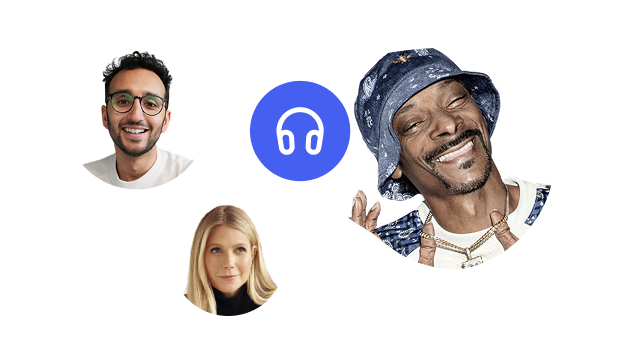Are audiobooks, print books, or e-books cheaper?
In general, written media and literature aren’t exclusive to paper mediums. Digital content is on the rise because it’s easy to consume and more accessible to diverse audiences. The digital publishing industry has channels, from social media posts to podcasts to audiobooks. But that doesn’t mean physical books are a thing of the past. More users than you think still prefer traditional ways of getting the news or reading a story. While diversity certainly improves accessibility, it isn’t always ideal. Being presented with a variety of choices makes it challenging to decide on a book format. Yet, understanding more about each book type can help you identify the most convenient or cost-efficient option based on your unique needs and preferences.
An overview of the pricing
Three book formats now dominate the literary industry. There’s the ever-popular print book, digital e-books, and new and exciting audiobooks. But as popularity differs between book enthusiasts, so does the pricing. You might not find the same book on Amazon Kindle Unlimited, Audible, your local library, or even e-book library service like Overdrive. An e-book reader gives users access to the cheapest stories since books in a digital format are easy to produce and distribute. Print or physical books are more expensive, hence the higher price tag. Audiobooks are even pricier and can sometimes cost twice as much as their paperback counterparts. While this may not please every book lover, production expenses and publishing or distribution fees heavily influence book prices.
Statistics on audiobooks, print books, and e-books
Digital books might be the most affordable way to enjoy non-fiction and fiction content, from textbooks to bestsellers. Interestingly enough, print books still outsell e-books at a ratio of four to one. It’s understandable, especially in the American market, where up to 37% of readers claim to prefer print books. Only 7% say they prefer using e-readers like the Amazon Kindle or Nook, and 28% of avid readers use both text and digital formats. Audiobooks also keep growing between 20% and 25% every year. In contrast, fewer adult readers own e-readers. While very convenient and affordable, e-books are in a tricky spot. They take away the reader’s pleasure of physically turning the page and aren’t as immersive as audiobooks. It’s no wonder why physical books remain the top-earning book formats for publishers. However, audiobooks may soon change the game. Between 2014 and 2018, the availability of audiobooks in a digital format grew from 69.1% to 91.4%. Moving away from CD sets, apps, and other forms can lower production costs and potentially make audiobooks even more affordable and profitable moving forward. While the pandemic certainly shook the publishing industry, 2019 numbers show some exciting stats for audiobook lovers. Print versions accounted for 74.7% of the industry’s $26 billion revenue, but e-books sales only generated 7.48% of the revenue. That means other formats, primarily audiobooks, accounted for 17.82% of revenue. It shows their growing popularity with consumers, despite their higher costs.
Pros and cons of the three book formats
Discussing the pros and cons of all book formats is essential for picking between traditional books, audiobooks, and eBooks.
Physical books
Plain hard copy books have a lot going for them and a couple of disadvantages in the current environment. Pros
- Not reliant on technology and power
- Irreplaceable book feel
- Less exposed to censorship
- Easy to borrow or lend
- A good book keeps readers focused by taking away technology distractions
- Real sense of ownership
Cons
- Dependent on proper lighting conditions
- Not as portable or easy to store
- Can be expensive
- Lose value from highlighting and wear
Audiobooks
Audiobooks are the newcomers and are, according to many, the publishing industry’s future.
Pros
- No eyestrain
- No lighting requirements
- Exceptional portability
- Compatible with many iPhone, iPad, Android, and other mobile devices
- Better for multitasking
- Possibility of pairing unabridged audiobooks with e-books (e.g., Kindle books and Audible)
- Bookmarking and controllable playback
- Accessible to people with disabilities
Cons
- More expensive than other formats
- Can take up more digital space
- Won’t work without devices and access to a charger
- Less than stellar highlighting
- Fewer self-published titles available
E-books
Reading e-books was once the next big trend until audiobooks entered the scene. That doesn’t mean there aren’t some pros to eBooks or situations that make them more appealing.
Pros
- Seamless highlighting features
- No physical or digital library space requirements
- Excellent portability
- Often transferable between devices (e.g., on Google Play, Kobo, Amazon Kindle, Speechify, etc.)
- Cheapest book formats
- More accessible publishing for authors
- A great format for shorter works like novellas and comics
Cons
- Dependent on mobile and desktop devices
- Not the same feel as owning or reading a physical book
- Smartphone and e-reader ads and social media notifications can distract
- Not as immersive as physical copies or audiobooks for everyone
Get inexpensive audiobooks with Speechify
If you want a different reading experience, listening to audiobooks as opposed to turning pages on hardcover books is a great way to go. Speechify has an audiobook service covering over 60,000 titles. You can find free public domain works, New York Times bestsellers, and some of your favorite authors. Reading books is time-consuming, but Speechify can help you personalize, enhance, and speed up your listening experience. Try Speechify by downloading the app on your Apple, Android, Windows, or Mac devices. Listen to free eBooks in their audio versions or get your favorite copy at a competitive price.
FAQ
Are e-books the cheapest book format?
E-books are cheaper than audiobook versions and physical copies with many booksellers.
Can printed books be cheaper than e-books?
Printed books can be cheaper than e-books during promotions or when sold as used.
Are all audiobooks cheaper than printed books?
Audiobooks generally aren’t cheaper than printed books. They can be if printed books are rare editions or have authentic autographs or dedications.
What is the cheapest way to read a book?
Getting a public library card is often the cheapest way to gain access to physical books, audiobooks, and e-books—but you may struggle to find new book releases.





